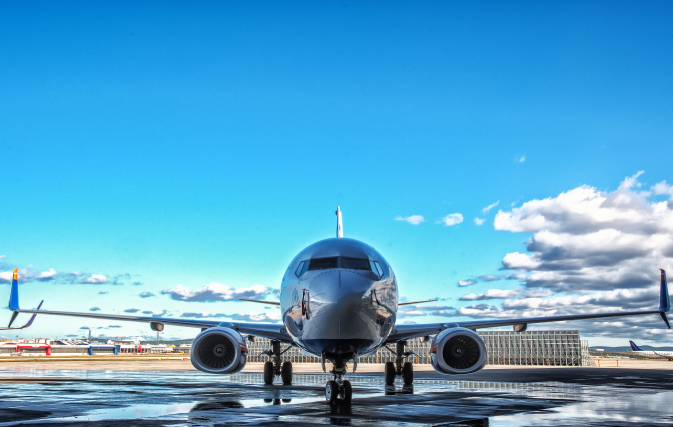TORONTO — In early March 2019, one by one, countries around the world grounded the Boeing 737 Max 8 after the tragic loss of Ethiopian Airlines 302 on March 10, 2019 and before that, Lion Air 610 in October 2018.
On March 13, Canada announced that it too was grounding the aircraft. Transport Minister Marc Garneau ordered the grounding of all Boeing 737 Max 8 airplanes in Canada, and Canada closed its airspace to the aircraft.
In the immediate aftermath of the ET302 crash Garneau said he wouldn’t hesitate to fly on the aircraft, and stood firm in Canada’s refusal to ground the planes.
But at that March 13 press conference, Garneau said new data had come to light that resulted in the about-face.
“Yes there will be some disruption. It’s unfortunate but we must put safety at the top of the agenda. The airlines have been very understanding. For the moment, caution has to dominate.”
Any airline with 737 Max 8s immediately went into crisis-strategy mode, reworking schedules to accommodate the grounding. Air Canada has 24 of the aircraft. Sunwing has four 737 Max 8s and WestJet has 13. Airlines around the world were impacted, particularly Southwest in the U.S., which with 34 737 Max aircraft has the most of any airline. Later on March 13, the U.S. announced that it too would ground the planes.
Travel agents fielded calls from clients anxious to know if their trips were affected. Airlines posted notices on their websites with the latest updates, and offered full fee waivers for passengers impacted by the groundings.
The task was formidable. Air Canada, with 24 of the planes, estimated that the aircraft carried anywhere from 9,000 to 12,000 passengers per day.
That said, Air Canada also noted that while it would typically operate about 75 flights daily on Max 737 aircraft, that number represented less than 6% of its total flying, out of a total schedule of approximately 1,600 daily flights system-wide. The airline has a total fleet of 400 aircraft (including 24 737 Max aircraft), made up of Air Canada mainline, Air Canada Rouge and Air Canada Express aircraft.
In the early days WestJet said the grounding order affected about 1,400 customers daily.
In the midst of it all, travel agents worked overtime to rebook clients. ACTA sent shout-outs to its members: “ACTA has heard from many of our members and as expected, we are impressed with how proactive our members are, and providing excellent customer service during times of uncertainty. This is a true testament of the value of booking with an ACTA travel agency member.”
Every few weeks, then every couple of months, airlines would update customers and the trade, recalibrating schedules without a return date for the aircraft in sight.
All in all close to 400 Max aircraft around the world remain grounded.
In May 2019 Boeing announced that it had flown more than 130 test flights on the aircraft, with an update to its software. The company said it had a backlog of some 4,600 orders for the Max.
The FAA also indicated, in May, that the aircraft could soon be back in the air. “We are going through an incredibly intensive and robust process to make the safety case to unground the Max,” acting FAA Administrator Daniel Elwell said at the time.
However, regulators in China, the European Union and Canada said they planned to conduct their own reviews of Boeing’s software changes and stressed the need for additional pilot training.
There was also the question of consumer confidence. American Airlines CEO Doug Parker told NBC that because of all the news coverage of the crashes and their aftermath, no amount of marketing will sway worried passengers.
Meanwhile there was turmoil at Boeing, which in October reported a big profit shortfall for the third quarter after costs related to the troubled 737 Max rose by US$900 million. The company also faces 150 lawsuits from relatives of crash victims, and it has set up a $100 million fund to aid families.
And in November unions representing flight attendants at Air Canada, Sunwing and WestJet voiced their support for their American counterparts, who expressed their concerns about the troubled aircraft.
In an official statement, CUPE said: “The safety of passengers and crew must always come first. The federal government’s decision to ground the Boeing 737 Max in Canada was the right thing to do. Given the record of Boeing and the Federal Aviation Administration in that file, it will now be up to Transport Canada to provide assurances that these aircraft are fully compliant and safe for union members and the travelling public.”
The latest update, coming Dec. 16, has Boeing suspending production of the 737 Max sometime in January 2020, with no specific date for when production will be restarted.
Analysts say Boeing’s decision is a recognition that it will take longer than the company expected to get the planes back in the air.
With files from The Associated Press and The Canadian Press
Watch for more year-end coverage in Travelweek Daily on Dec. 31st with a fun look at the best oddball stories of the year.

